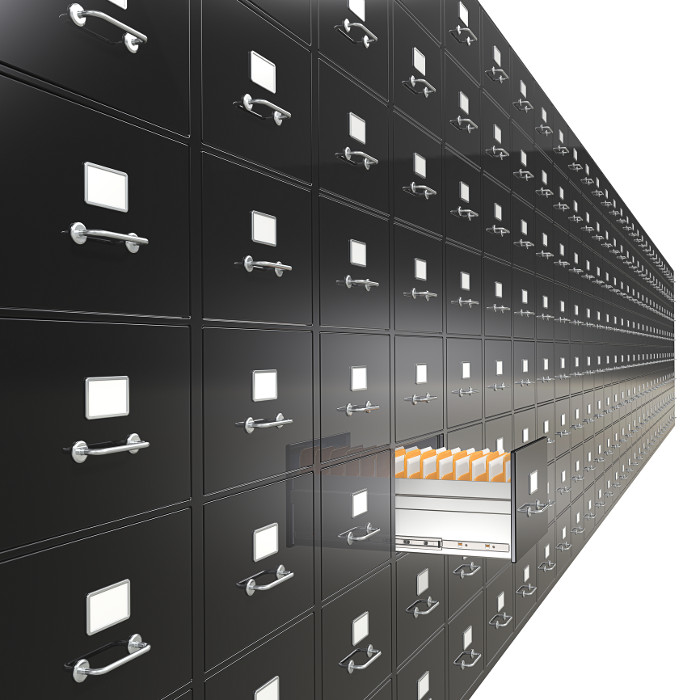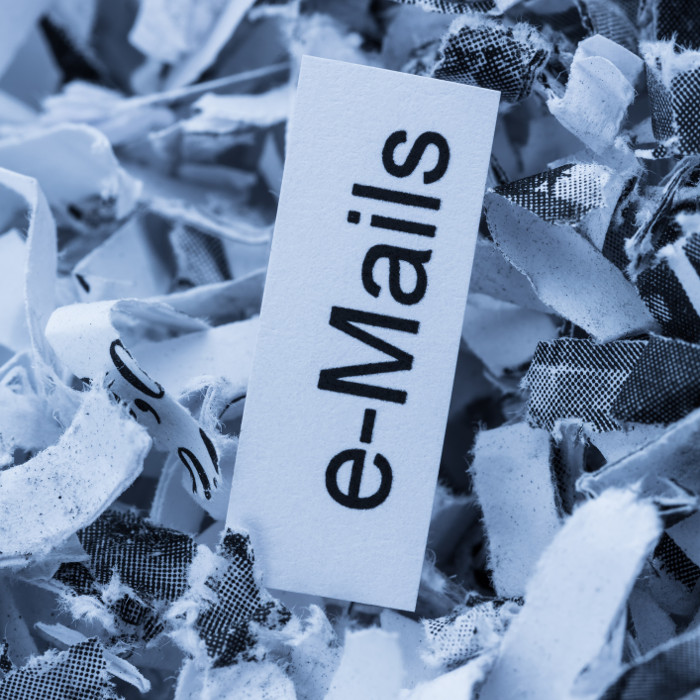It is essential for all organisations, no matter the size or industry, to archive electronic communications (electronic communications includes email, social media and mobile data). There are many reasons why organisations must archive and there are five key drivers, including:
- Storage Management
- Knowledge Management
- End User & IT Productivity
- Regulatory Compliance
- Litigation
Storage Management
There is a functional benefit in reducing the storage used on “live” servers. For example, if an organisation allows each user to have a one-gigabyte mailbox and each email server supports 1,000 users, this means that each email server will potentially need to store and process one Terabyte of mailbox data. Backing up such a large amount of data can take a substantial amount of time, not to mention the performance degradation that might result from managing so much content. Moreover, if a server crashes, restoring up to one terabyte of data onto the server will take a substantial amount of time and can result in long system downtime.
Alternatively, with an archiving system in place, system storage requirements can be greatly reduced, smaller mailbox quotas can be implemented and users can access their archived content directly in the mailbox or through a web-based interface. This will not only improve email server performance, but will also dramatically shorten backup and restore downtimes.
The reduction of duplicated data is also critical to the efficient usage of storage space. This technique (also known as Single-Instance Storage) identifies redundant data and only saves one copy of the file. When buying an archiving solution a company should especially consider this technology because it is only supported by some of the archiving solutions available.
Knowledge Management
Organisations have a duty to preserve the content that they pay their employees to produce. An email system, for example, contains a record of communications with customers, prospects, business partners and others. It contains records of appointments, contacts and tasks generated by each user, and it contains a record of an organisation’s “digital heritage”. Because of this, organisations should implement an archiving capability to preserve this information.
Email systems create silos of data. This data could be stored anywhere. Meaning that accessing, searching, and centralising this data can be very difficult. With the comprehensive eDiscovery functions of an archiving solution, organisations are now able to work efficiently with their data. With the help of indexing engines, data can be found easily and quickly. Different search criteria such as subject and date allow very exact search results. In that way only the exact data required by the user is retrieved.
End User and IT Productivity
Organisations that implement archiving and then give their users access to archived content, enable them to recover their own missing, deleted, or older email messages without having to ask for assistance. The users can now recover their own email more quickly, and the members of the IT department are more efficient because they do not have to respond to these types of recovery requests or tell users they don’t have the time or resources to do so.
This is a key consideration in the selection of an archiving capability, since users usually employ the use of email more than any other application. For example, recent surveys have found that the typical email user sends and receives 110 emails per day. This means that in an organisation of 2,500 email users, roughly 17.9 million emails will be sent or received every three months. If even a small portion of this enormous amount of content must be recovered periodically, archiving software can make both end users and IT much more productive by speeding up access to this material.
Litigation
Another important reason to implement email archiving is because of the litigation situations that an organisation may face. Litigation-related drivers focus on three basic capabilities:
Early case assessment – Many decision makers, when they believe that their organisation might somehow be involved in a legal action, will want to conduct an early case assessment to determine the risk they face in either defending themselves or prosecuting the case.
Legal holds – Legal, or litigation holds, involve retaining all relevant content when decision makers believe that litigation might be forthcoming, even if no formal legal action has yet occurred. An archiving system, in conjunction with the appropriate retention policies, is extremely useful in enabling legal holds.
eDiscovery – An archiving system that can index, store, and enable the search of relevant content – all while protecting the integrity and the authenticity of the stored data – is vital when it comes to eDiscovery.
A short case study showed how important powerful eDiscovery tools could be for any organisation. During a legal dispute with a supplier, a French construction company received an audit request from the responsible court. Because the company had no archiving solution in place they were not able to handle the request. They could not satisfy the needs of the court until they accomplished this task. After they installed archiving software, they were able to quickly find and retrieve the requested information and export the data into different formats.
Regulatory Compliance
Finally, the last driver for archiving that is somewhat akin to the litigation driver, is regulatory compliance. While organisations in all industries face some level of regulatory compliance obligation that requires the retention and production of business records, some industries face strict and sometimes onerous regulations. These include the financial services industry, healthcare, pharmaceuticals, energy, and others. It is important to note that even supposedly “non-regulated” industries like retail and manufacturing face some level of regulatory obligation to protect business records.
In the context of email archiving, compliance issues will always play an important role. But it is about more than just the external laws and regulations. It is also about complying with internal regulations, like mailbox quotas, the secure storage of business-critical data, and the ability to find and retrieve this data in the case of litigation.
IT compliance and data management requirements make it difficult for organisations to keep track of all the different laws and regulations. This is even more relevant for multinational companies, that must consider international legislation. Retention laws vary from country to country, but generally it can be said that relevant data has to be stored complete, unchanged, quickly retrievable and for a period of up to 10 years.
The Benefits of Retain from GWAVA
These key drivers for archiving lead to one conclusion: every organisation needs an archiving solution. Retain from GWAVA is the only unified archiving solution on the market for Novell GroupWise. This solution offers organisations a number of legal, technical, and economic benefits, and also provides message archiving, powerful search, eDiscovery, and publishing for various platforms. Additionally, Retain allows for easy email system migrations.
Legal Benefits
As explained, retention laws are complex and difficult to understand. A violation of these laws can result in fines, sanctions, lawsuits, and other legal consequences. The implementation of an archiving solution, like Retain, is an easy way to ensure compliance. In the case of litigation, it provides easy and centralised access to all archived data.
Technical Benefits
Retain offers many technical benefits, including improving the performance of the messaging system and the ability to migrate email systems. The software enables an organization to move messaging data off of the live server and onto the archive. GWAVA has made it quick and easy, and the task is done without effecting the live email system. The data migration will look seamless to you and your users.
Economic Benefits
Retain allows organisations to greatly reduce their storage space through the use of single-instance storage and compression. When an email is archived it is compressed and all copies of that email and all attachments are archived one time. This reduced storage saves costs, and results in a quick ROI from the solution. In addition, the licensing costs for GroupWise can be cut, because once the data from inactive accounts has been archived, it is accessible in Retain without the need for a GroupWise license.
Additionally, Retain allows users to access and search their own archive, either directly from GroupWise or from its Web Access Viewer. Retain also provides users with the ability to restore archived messages directly to their live mailbox.
Archiving is Essential
Every organisation must archive its electronic communication, including email, social media and mobile communication. Failure to do so, can lead to fines, sanctions, penalties and potential litigation. Archived data provides many benefits, including increased system performance, data preservation, increased productivity, litigation preparedness, and regulatory compliance.
Retain by GWAVA, provides these benefits. When organisations like J. Browne Construction Company, Limited, and Prinsenstichting needed an archiving solution, Retain was the answer. They now have a peace of mind because they can now answer for any legal concern as far as providing electronic data is required. All of their electronic communication, including multiple email systems, social media and mobile messages can also be easily accessed, searched and published. When it comes to the five key drivers to archive data, Retain is the unified archiving solution.
For more information about Retain Unified Archiving, and for information about the need for archiving, visit: www.GWAVA.com/Retain
Customer Case – Comprehensive Reporting and Publishing with Retain
J. Browne Construction Company, Limited has been trading since 1971 and provides a wide range of civil engineering and utility contracting services in London and the South East of England. The biggest problem this company faced was that their employees were deleting important business-related email messages. There were a number of instances where users had deleted specific messages, only to realise their mistake days or weeks later. J. Browne needed a way to ensure that email could be restored and accessed, even if it had been deleted from the live server.
Furthermore, for J. Browne, it was essential that the archive included search and reporting functionality. Because this company has to deal with legal disputes from time to time, the IT department needed to provide its lawyers with regular reports.
With Retain, it was easy for the IT department to search for all emails pertaining to specific projects and to export the data to a stand-alone archive viewer for the use of the legal team. There have been many cases where organisations have claimed that projects were done incorrectly, or that information was not communicated. Because of the Retain archive, J. Browne Construction can easily search and retrieve email messages that prove that a job was completed based on communicated specifications. In fact, the legal team could easily search this viewer, without the need to have GroupWise or access to the full archive.
Customer Case – Migration to Retain from a competitor application
As a healthcare foundation, Prinsenstichting needed a secure and reliable archiving system for its email communication, because of its sensitive data and the need to protect that data in the long-term. Prinsenstichting had been using an archiving system but as this company’s needs quickly expanded, they began to run into more and more problems. The existing solution was not providing the reliability for their critical data. It did not retrieve all of the archived email that was requested and the system required a great deal of time and attention to stay operational. The software's performance was also unacceptably slow. Therefore, they decided to look at another solution.
Prinsenstichting’s long-term ICT partner Tmi3 recommended Retain from GWAVA, and after looking at the solution, they decided to make the move. Albert Stevens, ICT Manager for Prinsenstichting, explained, “Because of its safe handling of archived data, a user-friendly interface and great performance, Retain beat out the product we had been using. We especially like its stability. Plus, we got great support from both Tmi3 and GWAVA as we made the change.”
The migration went very smoothly and quickly, even though they had copious amounts of data, which had to be migrated to the new archiving solution. “We had a special challenge that had to be addressed. The amount of data was huge, but we had to migrate it in a very short time frame. In total, we migrated 3.2 million emails in 5 days, along with over 7.2 million associated documents. Because we used many machines, we made it happen in this short time frame,” stated Stevens. In the end, it took only 2.5 weeks to make the move completely to GWAVA Retain, which included the migration of all of their old archives into the new Retain system. Now they have the power of Retain and have a complete data archiving solution for all of their electronic messaging.
About GWAVA
GWAVA delivers messaging security, unified archiving and retrieval, and social media management for thousands of organizations with millions of users around the world. GWAVA is the trusted partner that secures and protects the worlds most critical messaging infrastructure. GWAVA maintains a network of global channel partners to ensure widespread access to GWAVA’s leading-edge solutions.
Information herein was obtained from the Osterman whitepapers, “Best Practices for Managing Email Archiving” & “Quantifying the Costs and Benefits of Archiving Your Email and Other Electronic Content.”



